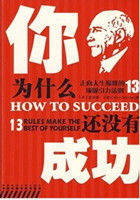II have a project to suggest. But first I will write a chapter of introduction.
I have just been witnessing a remarkable play, here at the Burg Theatre in Vienna. I do not know of any play that much resembles it. In fact, it is such a departure from the common laws of the drama that the name 'play' doesn't seem to fit it quite snugly. However, whatever else it may be, it is in any case a great and stately metaphysical poem, and deeply fascinating. 'Deeply fascinating' is the right term: for the audience sat four hours and five minutes without thrice breaking into applause, except at the close of each act; sat rapt and silent--fascinated. This piece is 'The Master of Palmyra.' It is twenty years old; yet I doubt if you have ever heard of it. It is by Wilbrandt, and is his masterpiece and the work which is to make his name permanent in German literature. It has never been played anywhere except in Berlin and in the great Burg Theatre in Vienna. Yet whenever it is put on the stage it packs the house, and the free list is suspended. I know people who have seem it ten times; they know the most of it by heart; they do not tire of it; and they say they shall still be quite willing to go and sit under its spell whenever they get the opportunity.
There is a dash of metempsychosis in it--and it is the strength of the piece. The play gave me the sense of the passage of a dimly connected procession of dream-pictures. The scene of it is Palmyra in Roman times.
It covers a wide stretch of time--I don't know how many years--and in the course of it the chief actress is reincarnated several times: four times she is a more or less young woman, and once she is a lad. In the first act she is Zoe--a Christian girl who has wandered across the desert from Damascus to try to Christianise the Zeus-worshipping pagans of Palmyra.
In this character she is wholly spiritual, a religious enthusiast, a devotee who covets martyrdom--and gets it.
After many years she appears in the second act as Phoebe, a graceful and beautiful young light-o'-love from Rome, whose soul is all for the shows and luxuries and delights of this life--a dainty and capricious feather-head, a creature of shower and sunshine, a spoiled child, but a charming one. In the third act, after an interval of many years, she reappears as Persida, mother of a daughter who is in the fresh bloom of youth. She is now a sort of combination of her two earlier selves: in religious loyalty and subjection she is Zoe: in triviality of character and shallowness of judgement--together with a touch of vanity in dress--she is Phoebe.
After a lapse of years she appears in the fourth act as Nymphas, a beautiful boy, in whose character the previous incarnations are engagingly mixed.
And after another stretch of years all these heredities are joined in the Zenobia of the fifth act--a person of gravity, dignity, sweetness, with a heart filled with compassion for all who suffer, and a hand prompt to put into practical form the heart's benignant impulses.
There are a number of curious and interesting features in this piece.
For instance, its hero, Appelles, young, handsome, vigorous, in the first act, remains so all through the long flight of years covered by the five acts. Other men, young in the firs act, are touched with gray in the second, are old and racked with infirmities in the third; in the fourth, all but one are gone to their long home, and this one is a blind and helpless hulk of ninety or a hundred years. It indicates that the stretch of time covered by the piece is seventy years or more. The scenery undergoes decay, too--the decay of age assisted and perfected by a conflagration. The fine new temples and palaces of the second act are by-and-by a wreck of crumbled walls and prostrate columns, mouldy, grass-grown, and desolate; but their former selves are still recognisable in their ruins. The ageing men and the ageing scenery together convey a profound illusion of that long lapse of time: they make you live it yourself! You leave the theatre with the weight of a century upon you.
Another strong effect: Death, in person, walks about the stage in every act. So far as I could make out, he was supposably not visible to any excepting two persons--the one he came for and Appelles. He used various costumes: but there was always more black about them than any other tint;and so they were always sombre. Also they were always deeply impressive and, indeed, awe-inspiring. The face was not subjected to changes, but remained the same first and last--a ghastly white. To me he was always welcome, he seemed so real--the actual Death, not a play-acting artificiality. He was of a solemn and stately carriage; and he had a deep voice, and used it with a noble dignity. Wherever there was a turmoil of merry-making or fighting or feasting or chaffing or quarreling, or a gilded pageant, or other manifestation of our trivial and fleeting life, into it drifted that black figure with the corpse-face, and looked its fateful look and passed on; leaving its victim shuddering and smitten. And always its coming made the fussy human pack seem infinitely pitiful and shabby, and hardly worth the attention of either saving or damning.
In the beginning of the first act the young girl Zoe appears by some great rocks in the desert, and sits down exhausted, to rest. Presently arrive a pauper couple stricken with age and infirmities; and they begin to mumble and pray to the Spirit of Life, who is said to inhabit that spot. The Spirit of Life appears; also Death--uninvited. They are (supposably) invisible. Death, tall, black-robed, corpse-faced, stands motionless and waits. The aged couple pray to the Spirit of Life for a means to prop up their existence and continue it. Their prayer fails.















